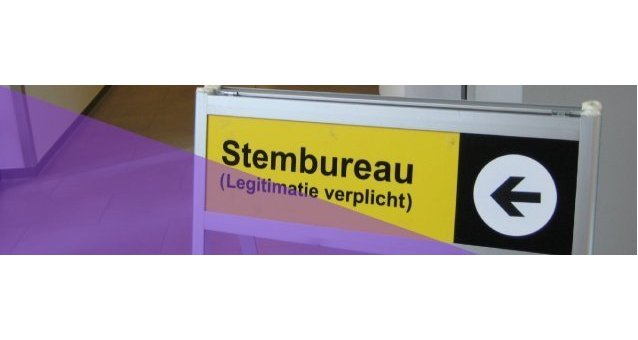The Dutch Elections 2017 from a feminist perspective

Blogpost written by the Dutch members Nederlandse Vrouwenraad Working group on Women in Politics: Marion Minis, Mieke Bakker-Mantjes and Renee van Laar.
The results of the recent Dutch parliamentary elections on March 15, 2017 contributed to a trend of decreasing women’s participation in national Dutch politics: The number of women MP’s in the Netherlands has climbed steadily from 21 (14%) in 1977 towards 61 (41%) in 2010, to slowly fall back. The results of the elections in 2012 (58 women (39%)) and 2017 when 54 women (36%) were elected, indicate a trend towards less female representation in the National Parliament.
Since 2002 a trend is visible in the Netherlands towards neglecting & ignoring UN/CEDAW obligations as ‘gender is a no longer an issue’, which was noticeable during the recent campaigns. Furthermore, the Dutch Government hasn’t taken seriously the High Court’s verdict to take effective measures to end the discrimination against women in politics by the Christian conservative party (SGP). Many political parties continue the practice of assigning males predominantly the winnable slots and women to the remaining slots, a clearly discriminating act. So far, the Dutch government answered the CEDAW Committee in very evading ways (November 2016) when asked again to account for not taking effective measures to accelerate the increase of women’s participation in politics.
None of the big parties had a woman heading their election list in the recent election, but all of the major parties had a woman as second on the list. Only one political party that entered the parliament, Party of the Animals, presented a female party leader. Talk shows in media had in general only male politicians and analysts to inform the audience. Only occasionally, we saw female politicians debating issues of special importance to women. Artikel 1, a new party, explicitly brought up racism and gender inequality in their election campaign, and had several established feminists on their election lists, but did not receive enough votes to enter the parliament.
National political parties and their candidates strongly tried to encourage first time voters to vote, which worked well (!) as we had a much higher voter turn-out (81.9%) compared to previous elections. The March elections counted the highest amount of voters since the national elections of 1986. The election campaigning at times gave the impression of watching Idols instead of candidates running for the parliament, but the popular approach of many of the election campaigns worked in terms of getting people to the polls and that’s most important!
We had a choice of 28 parties, including many new ones, which was the result of concerned citizens who were fed up with politicians who change political colours as soon as they are part of the government. 13 political parties gained enough votes to enter the national parliament; the highest amount of parties since 1972. Many of these new parties came up with ideas to restructure the political system. The establishment by the Government of a Committee to Advise on changes in the Dutch Constitution, several weeks before the election, suggests that the ruling parties hope that new ideas will evaporate in time.
Right-wing parties promised ‘better times for everyone’ without telling what changes in policy will lead to such a result. To Prime Minister Mark Rutte corporations are the generators of jobs and prosperity. He completely disregarded women’s contribution working in poorly paid jobs and in unpaid labour and care, and ignored the fact that many women’s lost their jobs (as civil servants) as a result of the transfer of national tasks to municipalities, including austerity measures.
Geert Wilders’ Islamophobic PVV won 20 votes (less than expected), while the coalition parties of the former government lost many seats: the neo liberal VVD lost 7 seats while the Labour Party (PvdA) lost 29 seats (!). Despite this loss, VVD remains is the biggest party and therefore the lead actor in the formation of a new coalition, without PVV as was publicly vowed. We didn’t notice any direct anti feminism. Political newcomers Thierry Baudet, who entered the parliament with his populist/conservative party FvD (two seats) showed himself an anti-feminist and sexist, as did Jan Roos (VNL) though he (and his party) didn’t make it into the parliament. Although PVV is a right-wing party, and voted against the ratification of the Istanbul Convention and against FGM legislation, it supports its first lady, MP Fleur Agema on elderly care and women and gender issues.
To turn the downward trend of women in the Parliament, the Dutch Women’s Council (NVR) campaigned on ‘Strategic Voting’ - not voting for the first women candidate on the list of a political party, but to choose a women on a much lower position, a women who most likely will not end up in the Parliament unless she wins preference votes. Leonie van Gils from EWL member International Alliance of Women and who is a specialist on gender & elections, was interviewed by national media regarding the campaign (in Dutch).
A candidate needed 17.600 preferential votes to be elected. The campaign resulted in 3 women elected as MP: Lilianne Ploumen from the Labour Party received 20.000 votes, and Isabelle Diks and Lisa Westerveld 18.000 votes from the Green Left received 25.000 and votes respectively.
Part of the campaign is an e-toolkit to facilitate the NVR membership to work on (local, regional, national and European) elections and gender. Furthermore, analyses of the election programs of the political parties on gender & equality by NVR partners Women Inc, Atria en Opzij (national magazine) were published online and a Political Gender Sensitive Advisor was developed to advise (esp. LHBTI) voters on sexuality, equality and making your own choices, ‘as it is all politics’.




